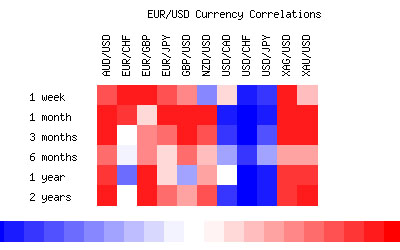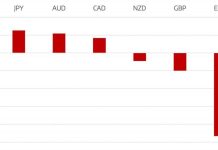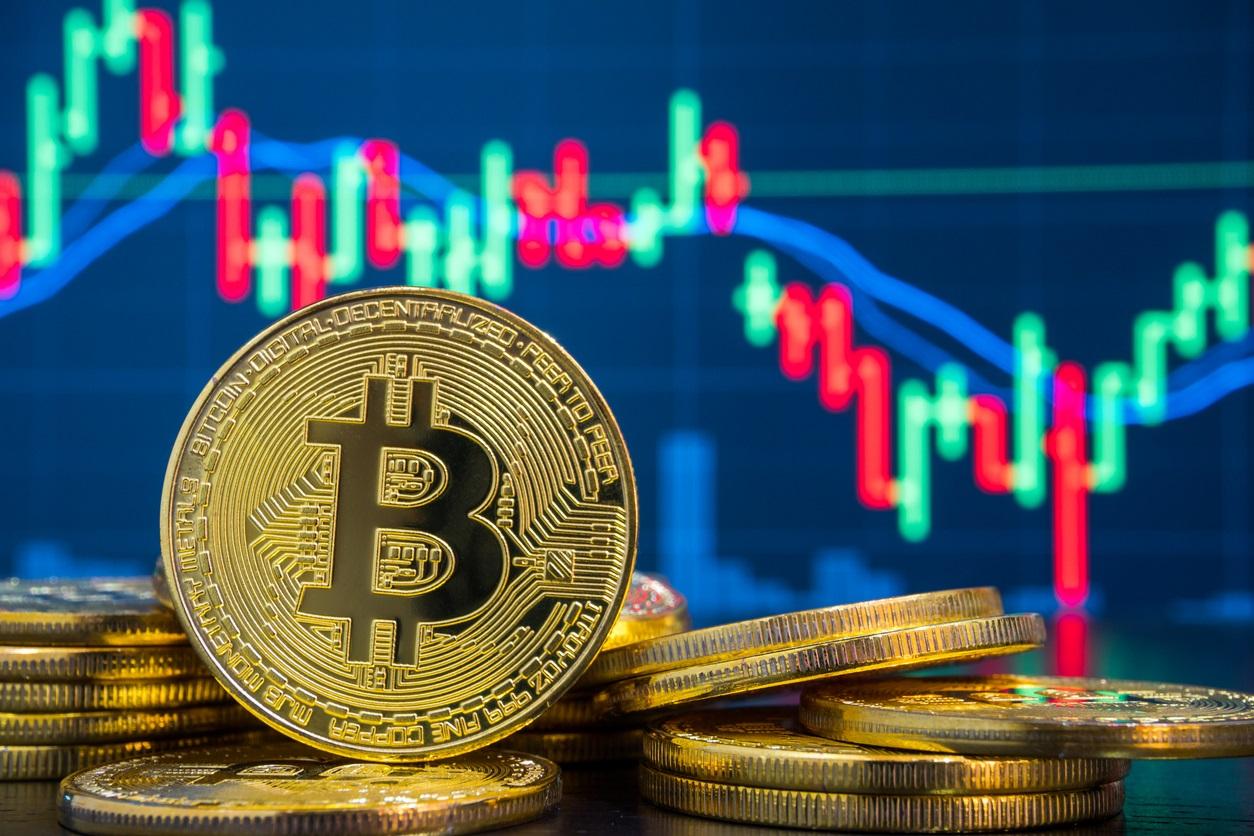El Salvador set to become first country to adopt bitcoin as legal tender
“Next week, I will send to Congress a bill that will make Bitcoin a legal tender,” said El Salvador’s President, Nayib Bukele, while speaking during a video broadcast at the Bitcoin 2021 conference held in Miami early last week. The President also revealed that the country had entered a partnership with the famous digital wallet company, Strike, in order to build a modern financial infrastructure for the country using Bitcoin technology. President Bukele supported his decision in a series of tweets. “#Bitcoin has a market cap of $680 billion. If 1% of it is invested in El Salvador, that will increase our GDP by 25%. On the other side, #Bitcoin will have 10 million potential new users and the fastest growing way to transfer 6 billion dollars a year in remittances.” Jack Mallers, the founder of Strike, pronounced that “holding Bitcoin provides a way to protect developing economies from potential shocks of fiat currency inflation.” Mallers added that the move would help unleash the power and potential of bitcoin for everyday use on an open network, and this would benefit individuals, businesses, and public sector services.
During his video broadcast, President Bukele stated, “Financial inclusion is not only a moral imperative but also a way to grow the country’s economy, providing access to credit, savings, investment, and secure transactions.” El Salvador is a cash-dependent economy, and the president felt that adoption of Bitcoin would lead to more financial inclusion for the state’s citizens. Crypto enthusiasts are taking this development with extreme excitement, as many of them believe that this is further indication that the leading crypto asset is gaining ground globally. According to Justin Sun, the founder of TRON, the move by the American country will lead to more crypto investors and entrepreneurs moving there. Microstrategy’s chief executive, Micheal Saylor, tweeted, “Welcome to Bitcoin.” At the same time, Caitlin Long, the CEO of Avanti Bank, hailed the announcement as a historic day in the history of Bitcoin. CZ, the top executive of the leading crypto exchange Binance, asked his followers to predict the next country that would be adopting BTC. He then added, “El Salvador is beautiful.”
Paraguay joins the crypto train, says ‘Bitcoin to the moon’
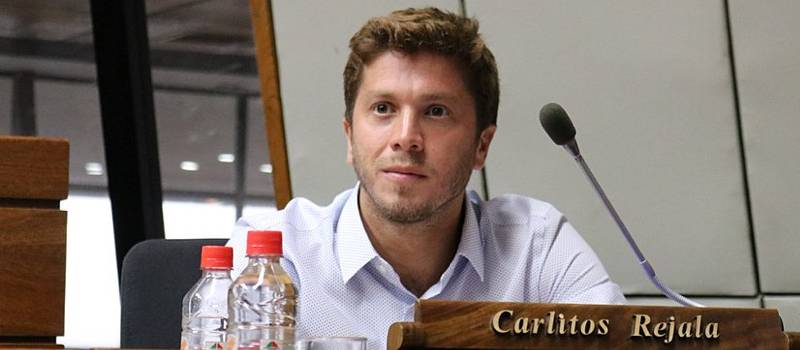
Paraguay Congressman Carlitos Rejala said in a tweet that Paraguay is setting an important project in motion this week, hinting at Bitcoin (BTC) and its legal tender status. This came only a day after the announcement made by El Salvador President Nayib Bukele, and it seems Paraguay may be the next country racing to legalize Bitcoin. Rejala, who is the Chamber of Deputies representative, updated his profile photo on Twitter by adding laser eyes. “As I said a long time ago, our country needs to go hand-in-hand with the new generation. The moment has come, our moment. We start this week with a valuable project that will renew Paraguay in front of the world,” Rejala tweeted, adding at the end of his announcement, “to the moon #btc & #paypal.” Bitcoin adoption took a dramatic spin as politicians in Latin America started declaring the region is ready to open up to crypto. The drums began to beat last week when the president of El Salvador, Nayib Bukele, disclosed plans to give Bitcoin the status of legal tender, announcing the bill will be presented to regulators at the end of last week. It would seem that the legal tender stage of crypto adoption is here as countries put in motion plans for adding Bitcoin to their state treasury. To protect their economy from inflation and the domino effect caused by the depleting value of the US Dollar, countries such as El Salvador and Paraguay have come to realize that Bitcoin might be a solution. Currently, the world is witnessing dramatically opposite positions among governments around the world, ranging from rigid disapproval to welcoming adoption.
However, it is important to note that hyperinflation and devaluations cause safe-haven assets such as crypto to become increasingly sought after, and it is believed that more countries are going to join the crypto train as it departs since they know investors are going to gravitate towards it.
PayPal processed nearly $2 billion worth of bitcoin, Ethereum, and Litecoin trades in May
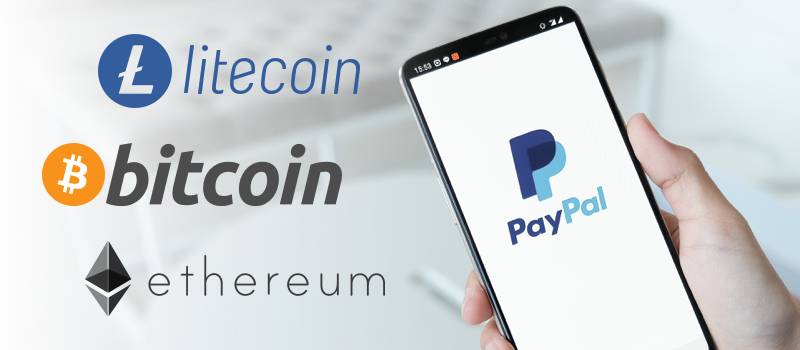
itBit, which is PayPal’s custodian of crypto funds, traded over $2.1 billion worth of Bitcoin, Ethereum, Bitcoin Cash, Litecoin, and PAX in May, according to data provided by the analytics tool Nomics. Owned by Paxos, itBit is a crypto exchange that provides liquidity for PayPal, which is the US company operating an online payments system and which had entered into the crypto market in October 2020. PayPal, which currently supports four cryptocurrencies: Bitcoin (BTC), Ethereum (ETH), Bitcoin Cash (BCH), and Litecoin (LTC), utilizes easy-to-integrate APIs which have enabled the payment system to enter the crypto market on a massive scale. The itBit exchange has seen extensive growth in trading volume recently, and one possible reason is that the PayPal cryptocurrency platform has a high utility among its users. On May 19, right after the broader crypto assets started to sell, the itBit exchange hit a record $303 million daily trading volume. Prior to PayPal stepping into the crypto market, the crypto exchange hit a previous daily trading volume record of almost $240 million in January of this year. PayPal provoked various reactions last year when it announced that its customers could buy, sell, and hold Bitcoin on its platform. The company did not provide support for their user base at the time, which only grew in numbers during the pandemic. Recently, Jose Fernandez da Ponte, who is the head of blockchain and cryptocurrency at PayPal, announced at the Consensus conference that PayPal and its mobile payments subsidiary Venmo are adding support for transfers of Bitcoin from the platforms to third-party wallets. “We want to make it as open as possible,” he said, adding, “We understand there is more utility to those tokens if you can move them around, so we are definitely exploring how we can let people transfer crypto to and from their PayPal addresses.” With more than 3.5 million PayPal users around the world, the ability to transfer cryptocurrency from platforms to a third-party wallet has the potential of exposing crypto to an unprecedented amount of people.
US investors made over $4 billion trading Bitcoin last year

Quite a number of countries made massive gains in Bitcoin investments when compared to their traditional economic rankings, according to a recent report from the cryptocurrency analytics firm Chainalysis. The report broke down the estimated gains made by countries in 2020. Countries that could be termed emerging markets appeared to be doing much better in Bitcoin investments when compared to their more developed counterparts. US Bitcoin investors still led the gains, according to the report, and the United States dominated the table as US investors raked in over $4 billion in Bitcoin gains. This was four times bigger than the next country on the list, which would be China, whose investors made just over $1 billion. The huge inflows into crypto exchanges towards the end of the year most likely played a pivotal role in the US gains, according to Chainalysis. However, developing countries also made massive gains. Emerging markets recorded massive gains in their Bitcoin investments – Vietnam, for instance, “ranks 53rd in GDP at $262 billion and is categorized as a lower-middle-income country by the World Bank. However, Vietnam has a high level of grassroots cryptocurrency adoption, ranking tenth overall on the Global Crypto Adoption Index,” Chainalysis stated. Their report further stated that the country made $351 million in Bitcoin gains, performing better than other countries like Belgium and even Australia. Other countries which outperformed their GDP rankings included Spain, Turkey, and The Czech Republic. Each of these countries’ investors made gains of over $250 million on their Bitcoin investments. Bucking this trend, however, is India. With a GDP of over $2 billion, investors in India made a miserly gain of only $241 million on their investments. The Chainalysis report blamed this on “the Indian government’s historical unfriendliness to cryptocurrency.” Finally, their report mentioned that “investors in nearly all countries saw the biggest increases toward the end of the year.” During this period, Bitcoin’s value increased from around $11,000 to almost $30,000 between October and December.
India could soon classify Bitcoin as a regulated ‘asset’
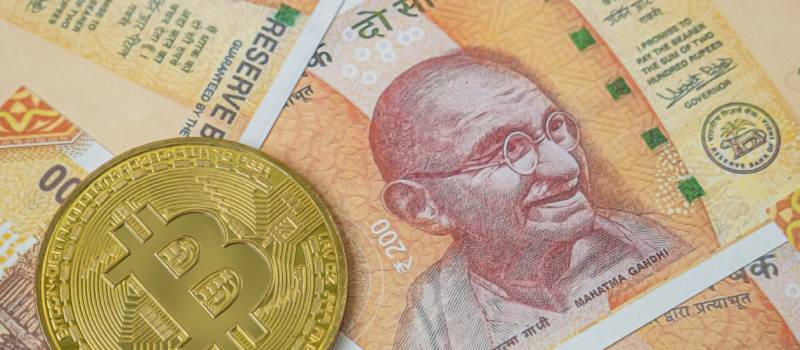
A report on the local daily newspaper, the New Indian Express, late last week suggested that lawmakers in India are looking to classify Bitcoin as an ‘asset’ which would then be regulated by the Securities and Exchange Board of India (SEBI). According to the paper, SEBI is expected to oversee Bitcoin activity in India and will classify it as a proper, regulated ‘asset.’ Thus far, Bitcoin has existed in a gray area in the country, and as of now, it cannot be used as local currency. The move comes shortly after the central American country of El Salvador legalized Bitcoin as ‘legal tender’ right alongside the US dollar—meaning the decade-old asset can be exchanged for goods and services similar to how dollars are exchanged. Sources cited in the news report promise that a so-called ‘Cryptocurrency Regulation’ bill is likely to be tabled in Parliament during the Monsoon session. Ketan Surana, the director and chief financial officer at crypto exchange Coinsbit (and a member at the Internet and Mobile Association of India) supported the sources. “We can definitely say that the new committee which is working on cryptocurrencies is very optimistic on cryptocurrency regulation and legislation,” said Surana.
He added, “A new draft proposal will soon be in the Cabinet, which will look into the overall scenario and take the best step forward. We are very hopeful that the government will embrace cryptocurrencies and blockchain technologies.” The report comes weeks after Shakthikanta Das, the governor of the Reserve Bank of India (the country’s central bank), had said that the government was exploring regulations to integrate cryptocurrencies into the broader economy while taking steps to mitigate potential risks. However, Das also had said at a separate venue, that “major concerns” remained, and that the government was apprised of the negative aspects of cryptocurrencies. Potential regulation would be seen very positively for what is one of the world’s most populous, yet economically challenged, countries.
All these Latin American countries want to adopt Bitcoin…and quickly.

Mexico’s government officials are prepared to propose crypto regulation before its Chamber of Deputies with Mexican senators, Eduardo Murat Hinojosa and Indira Kempis, leading the way. In the race to legalize Bitcoin (BTC), a lot still can happen before the next legal tender status announcement. The two Mexican senators in favor of Bitcoin are expected to present their ‘crypto regulation’ proposal before the Chamber of Deputies, said Senator Kempis in a tweet, confirming she will be the wingmen in the ultimate Bitcoin adoption plan, initially announced by Eduardo Murat Hinojosa. In Mexico, the Chamber of Deputies of Congress is the lower house of the federal Legislative Power. The current Fintech Law, which regulates two types of companies – electronic payment institutions (EPIs or electronic money issuers) and crowdfunding institutions – will need to be updated for crypto regulations to be born. That is just what the two senators hope to do. Under the current law, both of the two aforementioned institutions are permitted to operate with cryptocurrencies that are authorized by the Bank of Mexico.
Meantime, Panama officials are preparing to raise the issue in their National Assembly. Gabriel Silva, a Congressman in The National Assembly of Panama, announced on Twitter his intention to propose legislation for the country to embrace Bitcoin and cryptocurrencies. “This is important. And Panama cannot be left behind. If we want to be a true technology and entrepreneurship hub, we have to support cryptocurrencies,” said Silva in his tweet. He then added that he will be working on preparing a proposal to present at the National Assembly of Panama. Other Latin American countries are joining the Bitcoin adoption race with their own representatives preparing to challenge current regulations within their respective countries. These include Francisco Sánchez for Argentina, Fabio Osterman and Gilson Marques for Brazil, Jehudi Castro-Sierra for Colombia, and Carlitos Rejala for Paraguay. Will Latin America lead the way for the rest of the world?
Community reacts after Dfinity token ICP loses 80% of its value since May
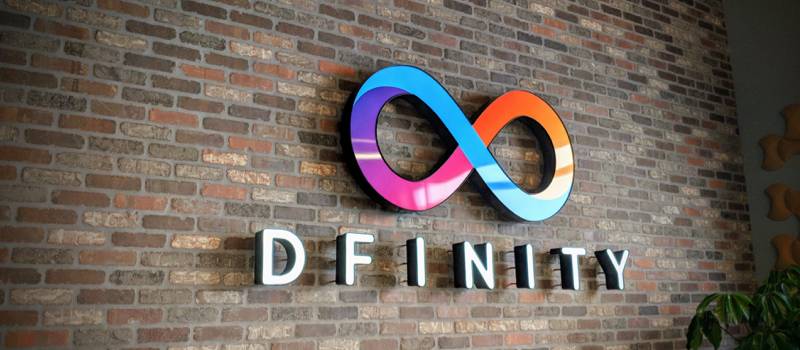
A little over a month ago, crypto enthusiasts were hearing about a new project on the top 10 rankings of cryptocurrencies – by market cap in the form of the Internet Computer Protocol (ICP). Run by the Dfinity Foundation, the project was trading for as high as over $580 and had a trading volume of $500 million. It was riding a bullish wave against the broader crypto market which was bearish. Developers of the ICP had labeled their project as a way of getting power back from “big tech,” and to put it in plain terms, they were focused on building a more decentralized network. However, in recent weeks, the value of the project has badly fallen, and it has lost over 80% of its value from its all-time high in May. Last week, it was trading at $66. ICP has also fallen out of the top 10 rankings of crypto assets, and it now ranks as number 17. Community reactions to the ICP decline are full of opinions as to why the project has seen a drop in its value. Users on Reddit say that while the idea and technology behind the project is a sound one, the project’s decline can be tied to greed and poor distribution. “The coin itself doesn’t even sound that bad judging from reading about their tech, it’s just the distribution that’s disgusting,” wrote ‘SweetPie123,’ the post’s creator. They added, “Sad to see a decent project getting ruined by greed. Early investors bought anywhere from as little as 3 cents to around $5 per coin. Every month new supply gets unlocked, increasing sell pressure.” Another user, Set1less, said, “ICP is a centralized shitcoin that is peddled as ‘decentralized’ to the elites and their cronies in IMF and WEF.” Some users even said they felt lied to about the protocol being decentralized.
The post Digital Asset Insights #20 appeared first on JP Fund Services.
Tradersdna is a leading digital and social media platform for traders and investors. Tradersdna offers premiere resources for trading and investing education, digital resources for personal finance, market analysis and free trading guides. More about TradersDNA Features: What Does It Take to Become an Aggressive Trader? | Everything You Need to Know About White Label Trading Software | Advantages of Automated Forex Trading



























